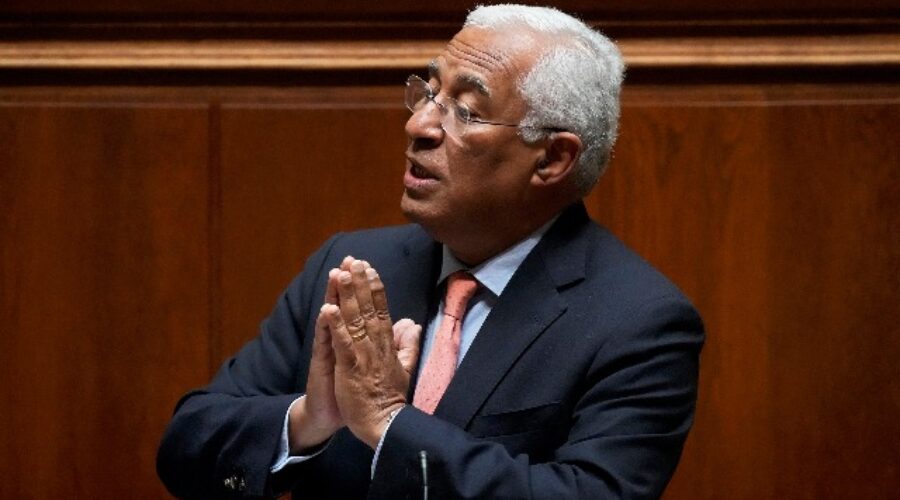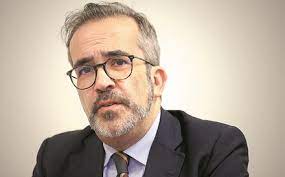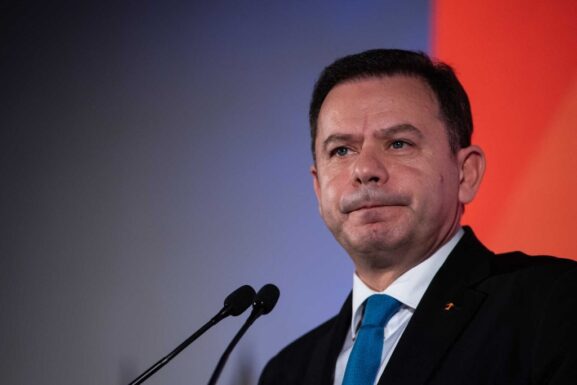António Costa is now aiming for political vindication
Portugal’s former prime minister António Costa is tipped to be named the next President of the European Council, in a move that could see him fully restore his political credibility after he was embroiled in a corruption investigation that brought his stay in office to a halt.
After lengthy discussions in Brussels on Monday, EU diplomats said Costa is one of a trio of candidates pencilled in for three power roles in Brussels, although the appointments are still vulnerable to political horse-trading.
His status as a testemunha (witness) in an ongoing judicial probe into corruption and influence-peddling did not initially emerge as a stumbling block.
Last November, Costa abruptly resigned as the Portuguese prime minister in the wake of revelations his aides had enabled irregular investment deals for lithium and green hydrogen projects – with Costa initially put under investigation.
The 62-year-old veteran has consistently and fiercely defended his innocence and says he stepped down from government to preserve his political integrity. It emerged that prosecutors had wrongly mixed up Costa’s name with that of Economy Minister António Costa Silva in wiretap transcripts, throwing the credibility of the legal case into question.
A snap election was held in March, which saw the centre-right opposition win by a razor-thin margin and the far right break into Portuguese politics for the first time. A centre-right minority government led by Prime Minister Luis Montenegro has since been sworn in.
Now, an appointment to one of the EU’s top jobs could help Costa reaffirm his credentials as one of the bloc’s most trusted and respected politicians. A socialist, Costa’s political family is claiming the European Council presidency for the next five years, and he has emerged as their top candidate.
Undoubtedly, one of the biggest boosts for Costa is the unwavering support of the newly-installed prime minister Montenegro, previously his political rival.
Montenegro has described Costa as the best candidate for the job and vowed to do everything in his power to support his bid, an endorsement considered pivotal in giving credibility to Costa’s claim to the Council presidency.
The Portuguese premier says he has “more trust” in Costa than he would have in a socialist of another nationality, and has hailed his strong track record in promoting European integration, backing Ukraine and supporting the EU’s enlargement process.
Costa is also well-liked by Commission chief Ursula von der Leyen – whilst her relationship with the current Council President Charles Michel is frosty at best – and has been a constructive partner in the European Council for almost a decade.
According to political analyst Ricardo Borges de Carvalho, Costa is a skilled negotiator able to “bring together” positions of all leaders from all political colours and “get there where others would perhaps have more difficulty.”
Ultimately, it is Costa’s “capacity for dialogue” as “a good negotiator” that will give him the edge, Borges de Carvalho also told Euronews.
Slovenian Prime Minister Robert Golob, a liberal, said on Monday he had received “clarifications” from the new Portuguese government that Costa’s name would soon be fully cleared. “I just support him because he has lots of experience, lots of wisdom,” Golob told reporters.
Two other sources familiar with the negotiations said that there was no major opposition voiced during the negotiations towards Costa, and that his nomination would likely be confirmed.


